Articles Menu
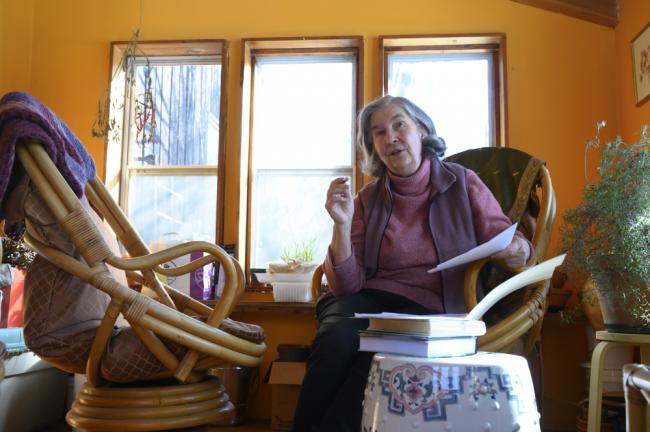
Feb. 25, 2020
It is bright and frozen beyond the walls of Diana Beresford-Kroeger’s cozy home this winter’s day in the farm country of southeastern Ontario. We are sipping tea and discussing best-laid plans gone up in flames.
In early November, a California radio station in Marin County invited the world-renowned botanist to participate in a podcast about her new book To Speak for the Trees.
The book, already in its fourth printing, has much to say about climate change and the healing role of forests.
But the climate crisis rudely intervened as wildfires once again scorched their way across the populous state.
Just before the scheduled interview, she got an emergency call from the station, recalls Beresford-Kroeger.
“They said, ‘Sorry we can’t do the interview today because the studio is on fire. We’re getting out of here fast.’”
At first she thought it was a joke. “They were telling me as matter of fact as though their studio goes on fire everyday. But this is the new reality.”
So she wished them well. “You know that that the crisis is happening to them and you realize yours might be the next shot.”
And there’s the problem. Climate change has now appeared at everyone’s doorstop in different guises; rising seas, longer king tides, melting ice caps, brutal fires, dying trees, failed crops, migrating peoples, rising food prices, monstrous storms, drying aquifers and absent politicians.
Beresford-Kroeger has been thinking about climate change for a long time.
She first thought about the issue in the 1960s while chatting with her bookish Uncle Pat about her fear of going hungry.
The two didn’t have much money, and Beresford-Kroeger already knew what it meant to go to bed with an empty stomach.
“Well, Diana,” said her uncle, “if there is a one-degree change in temperature, the bread baskets will be affected.” Cereals like wheat and oats just don’t grow well in tropical heat.
Ever since learning she could become hungrier, the budding botanist took a personal interest in climate change.
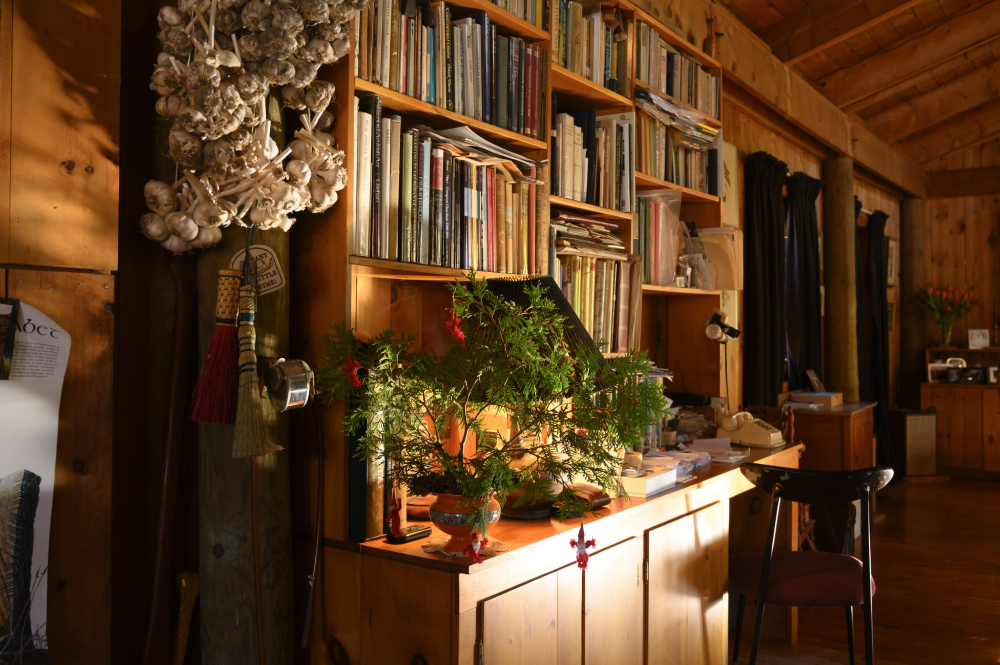
As an undergraduate in Cork, Ireland, Beresford-Kroeger explored the evolution of plants. “I remember coming across the great photosynthetic equation in a book and I couldn’t believe my eyes. And yet everywhere the great forests were coming down. That was an epiphany for me.”
What worries her most are the chemical chain reactions that rising carbon dioxide levels are now provoking in the oceans and the soil. Soils can sequester carbon and, like the ocean, they too can acidify.
“When you have a soil that is being acidified, that means your oxygen holding capacity is decreased and the root growth shrinks, and that affects the availability of the roots to pick up minerals and micro-elements from the soil. One of those minerals is selenium, which is directly related to fertility. So when you start reducing the soil and oxygenation, you reduce the ability of plants to produce selenium. In the end, our own fertility gets reduced. That kind of thing, nobody talks about.”
But she now realizes that informing people about the science isn’t enough even though the science speaks plainly, telling us rising carbon dioxide levels and accompanying temperature increases could propel the planet into another Eocene epoch.
Twenty million years ago, palm trees and crocodiles flourished in the Arctic; the oceans rose 150 feet; and carbon dioxide levels reached more than 800 parts per million. There were mass extinctions.
“The big thing that has become very apparent to me is that climate change is not just a question of science,” says Beresford-Kroeger. Her face turns pensive.
“It is question of society, too. Maybe the society question is a bigger one than the science. Maybe if you change the society’s thinking and the culture in its thinking, then maybe we will solve it.”
To explain what she means she talks about the history of her rural community in Loyalist, Ontario.
When she and her husband bought land nearly 50 years ago, she often questioned the old farmers, “these smart guys” that eked a living out of the rocky soil. She asked them about the old ways, the patterns of the wildlife, the old surviving trees, the mushrooms that still flourished and the climate. “You can’t be a fool and survive on this kind of land,” she declares.
She asked the old timers, for example, what they did without herbicides and pesticides.
“Their concept was that they would give a share of their crops to the wildlife, and they always did that. They had work bees where all the men would build a barn, and the women would do kitchen work. Some of the women would come out and do a hand here too. There was a richness of poverty here. Let’s call it that way. They even set up a fund to help members in the community in need. It was called the Flower Fund.”
But cheap energy and modernization slowly killed that communal culture. “The advent of the telephone, the computer and the internet literally destroyed all that thinking the same way colonization obliterated the medicine, language and culture of Aboriginal peoples. The connectivity between people went, and then their children lost the connectivity to the land.”
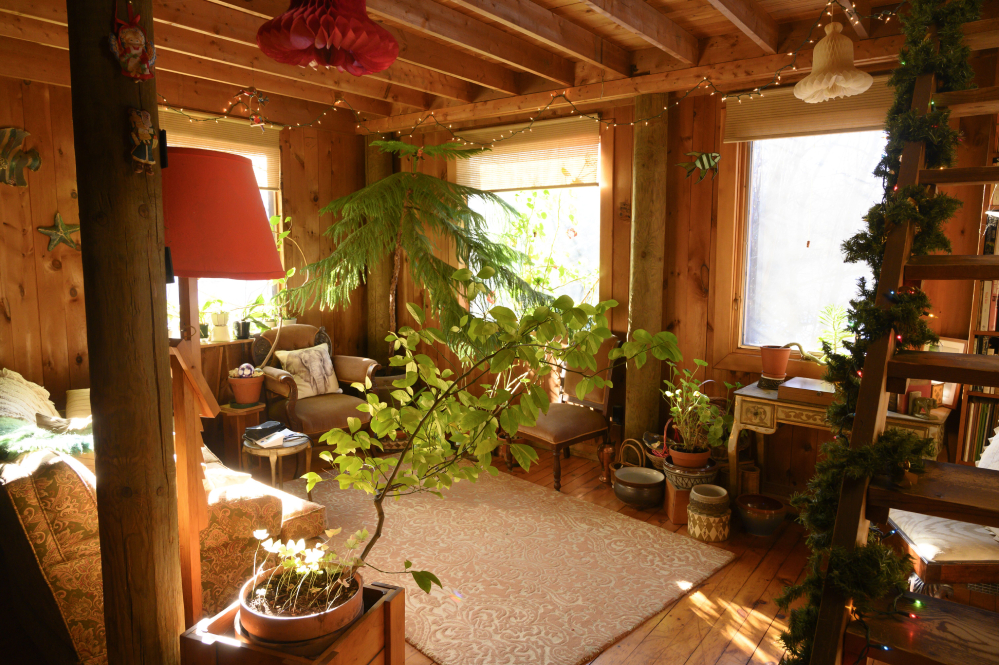
The home Beresford-Kroeger and her husband, Christian, share is snug but does not feel confining, despite all the books that line wooden shelves and the plants that sprout from pots, some reaching their branches into rooms.
You know, she tells me, when people have too much, they will abuse what they own. “It is the striving and saving for something that is important. Then you get your goal and you have it. If your choices are too great, you can’t make up your mind what you are going to do. You get overwhelmed by the choices.
“I’ve seen too much money, and it creates a disrespect for other people. It is a divider. It also creates a disdain for manual work. You think if you are doing manual work you are a savage somehow, but actually you are not. Manual work is just as important as intellectual work, because our humanity and community require a biodiversity of work.
“And that’s why the celebrity culture is such a damning culture for any society. It is all about the money and the Church of the Holy Dollar.”
These dramatic shifts in thinking, created by cheap energy and its illusion of abundance, have led us to the climate crisis, says Beresford-Kroeger, “and that has led to the destruction of everything around us and the grab of greed.”
“If I cut down this tree or if I build this house or if I wreck this area, it is only a small thing and it doesn’t matter. But all the small things add together. All of those molecules of carbon dioxide have come from the wreckage of something somewhere and are now loaded into the atmosphere. That is the crux of the problem, to get it out of the atmosphere and back into the body of a tree.”
To that end she first proposed a global bioplan to slow down climate change in 1999. It proposed that each person plant one native tree each year for the six years: a total of 48 billion trees.
Four hundred million years ago life the earth’s atmosphere was laden with toxic carbon dioxide. “Life initiated itself on this planet and managed to figure out some way in the genius of DNA of taking the carbon out of the atmosphere and cracking it into two, carbon and oxygen, and putting the carbon into the body of a tree and creatures in the ocean and oxygen into the air.”
Planting trees won’t solve the problem, but it may buy society more time to either consider the societal changes needed, she adds.
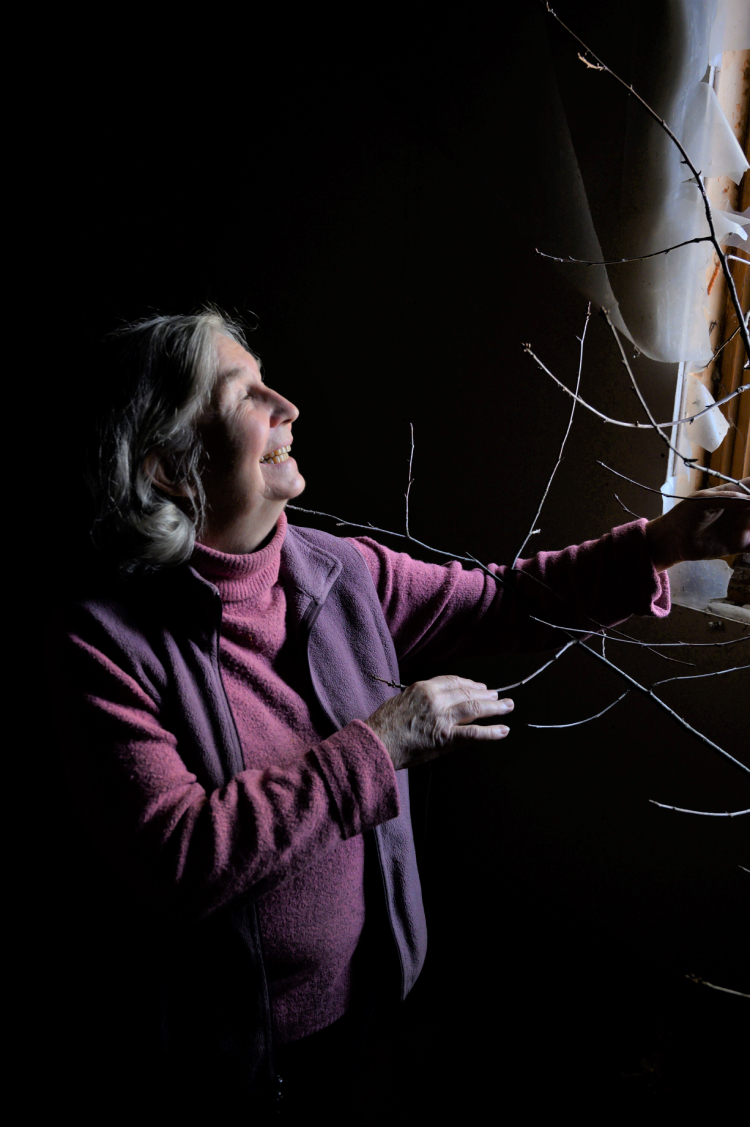
Beresford-Kroeger, who is 75 years old, likes what Greta Thunberg and other young people are saying because these children are asking herds of adults to turn away from the deadly cliff that chaotic climate change represents.
“They don’t want to die in a firestorm or in an earthquake or starving to death or from all these diseases that are on the horizon. That is what Thunberg is telling them, and she is really smart about that. And I go with her and say absolutely, ‘Let’s turn the herd around and let’s protect everybody.’”
But she doesn’t think society can do that without changing its fundamental thinking about money and greed.
“I know some seriously rich people in the United States who have their own armies,” relates Beresford-Kroeger matter of factly.
“It is almost inconceivable, and they have their own jets and fly anywhere they want. And they are sick, and they tell me they have a sickness. And the sickness is called money. And there is never enough money for them. And when I don’t take money from them and give them what I think is charity, my kindness, my thoughts, my ideas on medicine, they are overwhelmed by the fact that I am doing something for nothing. That is the hand of friendship.”
Beresford-Kroeger doesn’t think we can fight climate change without making greed and endless consumption as unfashionable as an obviously pregnant woman with a cigarette in her mouth.
“Everyone says, ‘My God, what are you doing to the child inside you?’ People should think the same of wealth: ‘My God, what is your greed doing to the community around you?’”
“We need to stop this celebrity culture where we worship the vacuous people just for their jewels or their ability to have money.”
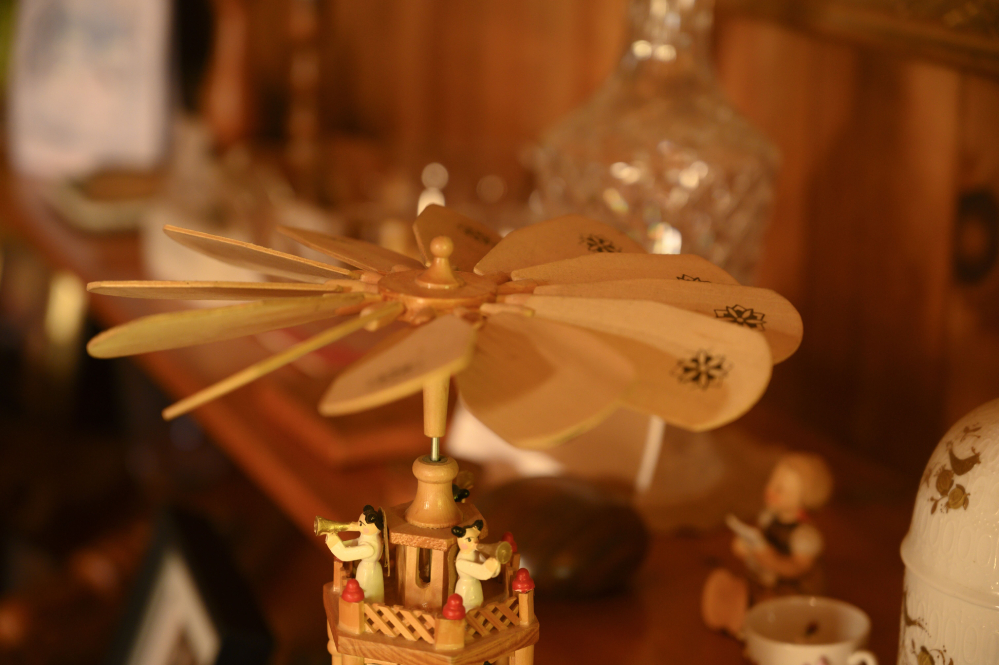
As I would learn as our conversation stretched long into the afternoon and then picked up the next day, Beresford-Kroeger is not short of ideas. She would also like to open people’s thinking again.
“You have to be open to everything if we want to come up with innovative ideas for climate change.”
She thinks there are endless energy possibilities in quantum mechanics as molecular machines or exploring how photons function like electrons in trees. She thinks better designed nuclear reactors should be able to burn uranium waste down to zero “with not one atom of carbon left over and no half lives remaining for toxic dumps.”
What we really need, she adds, “is a renaissance university system that opens the system up to all kinds of thinking.”
We also need poets, she says, because they have the greatest imaginations. “They capture the dream of society and open scientists to different kinds of thinking.”
“We need think tanks, not to make money, but to help people think outside the box,” she adds.
Lastly, we need to change our behaviours and learn to live much more poorly than we do. We must waste less and rediscover the joys of serving others.
“For instance, don’t buy crap. Buy things that last. Maybe the chair and table in your kitchen should last hundreds of years and maybe your children and great grandchildren should value it.”
She pauses for a moment. The tea is finished. She sips some whiskey.
“There is a whole world outside of the Church of the Holy Dollar. A time of change is a time of great excitement.”
But it takes saoirse. What is that, I ask. Saoirse, she explains, is a Celtic word that means freedom of a special kind. Freedom to embrace that world.
Tomorrow: How Diana Beresford-Kroeger discovered the power of “mother trees” in a forest, and how they inspire her thinking and writing. Find the whole series so far here.
[Top photo: ‘Climate change is not just a question of science. It is question of society, too. Maybe the society question is a bigger one than the science.’ Photo for The Tyee by Colin Rowe.]